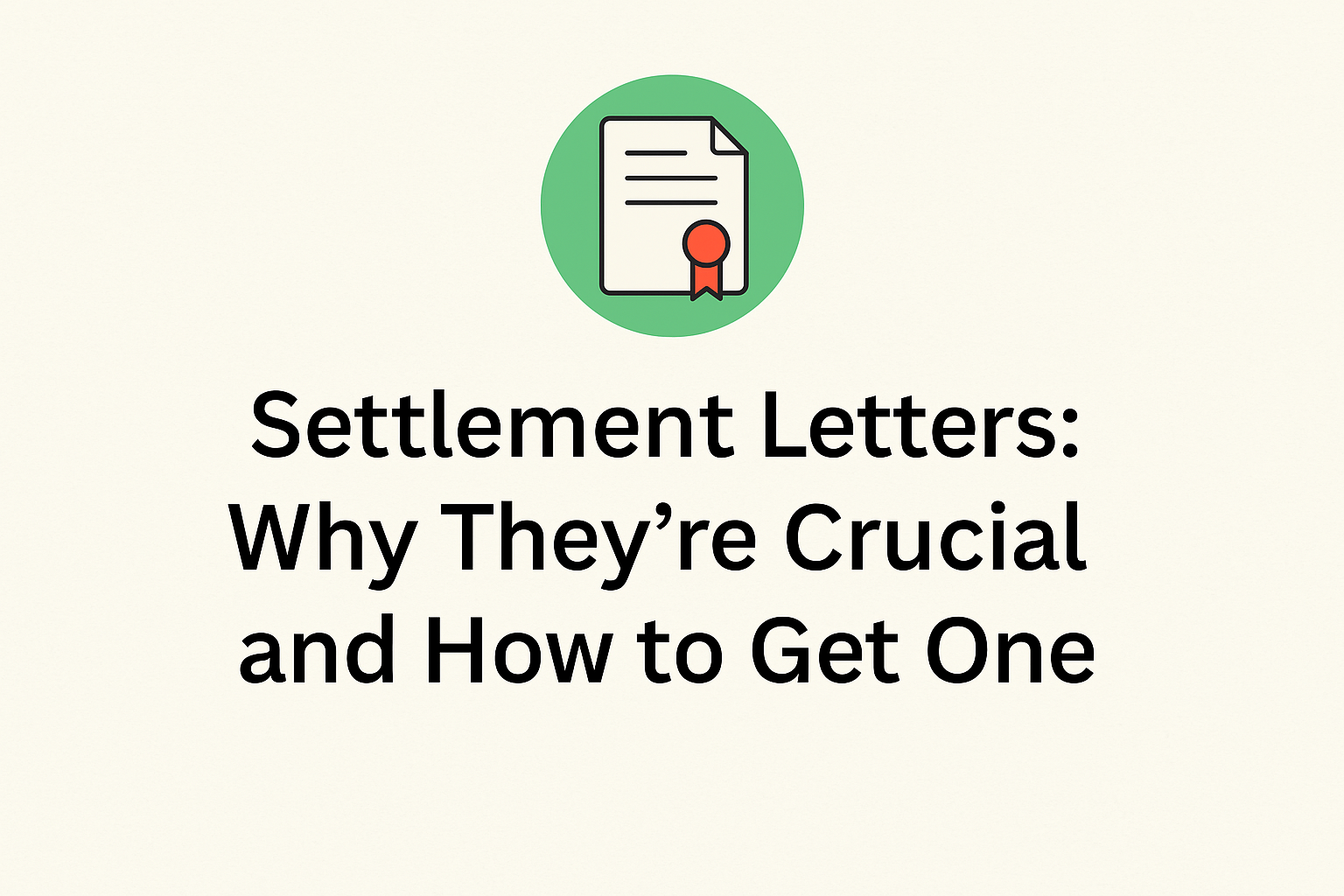🧾 What is a Settlement Letter?
A settlement letter is an official document issued by a bank or NBFC confirming that the borrower has settled their outstanding loan dues via a one-time negotiated payment. It acts as proof that the lender has accepted the settlement and will not claim any further amount from the borrower.
Whether you’re settling a personal loan, credit card, business loan, or education loan, this document is critical for your legal and financial safety.
✅ A settlement letter is non-negotiable for anyone going through a loan settlement in India in 2025.
⚖️ Why a Settlement Letter is Legally and Financially Crucial
1. Protects You From Future Claims
Banks may mistakenly or deliberately claim further amounts unless you have written proof. A settlement letter protects you from:
- Fresh legal notices
- Harassment by recovery agents
- Blacklisting from financial institutions
💡 Learn more: Stop Loan Recovery Agent Harassment
2. Required for Credit Bureau Disputes
CIBIL, Experian, and CRIF Highmark require documentation to:
- Update your loan status to “settled”
- Rectify errors in your credit report
- Avoid incorrect “written-off” status
3. Ensures Accurate Loan Closure
Most banks will not officially close the account unless they’ve issued a settlement letter and/or a No Dues Certificate (NDC).
📩 How to Get a Loan or Credit Card Settlement Letter
✅ Step-by-Step Process
- Negotiate a One-Time Settlement (OTS)
Work with a trusted legal advisor or settlement agency to negotiate your dues. - Make the Settlement Payment
Pay the agreed amount via NEFT/RTGS/cheque and retain the UTR/transaction number. - Request a Formal Settlement Letter
Submit a written application (email) to the lender requesting a settlement confirmation letter. Mention:
- Loan/Credit Card account number
- Settlement amount and date
- Payment reference number
- Follow Up Until You Receive It
Banks usually take 7–15 working days. Keep records of all communication.
📑 What Should Be Included in a Valid Settlement Letter?
A proper loan settlement letter must contain:
- Borrower’s name & account details
- Date of settlement
- Final amount paid and reference ID
- Confirmation that no further dues are pending
- Signature and stamp of authorized bank officer
⚠️ Don’t accept verbal confirmations. Always insist on a hard copy or signed PDF.
🧠 Credit Score Impact of Loan Settlement Letter
While a “settled” status does impact your CIBIL score temporarily, having a settlement letter:
- Helps avoid “written-off” or “default” tags
- Assists in future credit repair strategies
- Makes you eligible for credit rebuilding services like our Credit Score Builder Plan
A poor score without documentation = blacklisting.
A poor score with documentation = recovery path.
📝 Sample Format
textCopyEditTo,
The Manager,
[Bank/NBFC Name]
[Branch Address]
Subject: Request for Settlement Confirmation Letter
Dear Sir/Madam,
This is regarding my loan/credit card account number [XXXXXXXXXXXX]. I have paid the full and final settlement amount of ₹[amount] on [date] as per the terms agreed. Kindly issue a formal settlement confirmation letter for my records.
Thanking you,
[Your Full Name]
[Email & Contact Number]
🧾 Why You Should Also Get a No Dues Certificate (NDC)
After receiving your settlement letter, request a No Dues Certificate to ensure:
- Complete closure of your account
- No future interest/penalty accruals
- Protection from collection agents
🛑 Without a proper NDC, the bank can reopen your loan based on internal policy errors—even years later.
🤝 Why Choose Guardian Financial Experts for Settlement Letters
At Guardian Financial Experts, we handle everything from start to finish:
- RBI-compliant negotiations
- Complete documentation including settlement letters and NDCs
- CIBIL rectification support
- Protection from illegal recovery practices
💬 Read: How We Negotiate With Banks Effectively
✅ Legal
✅ Transparent
✅ Fast
🔍 Frequently Asked Questions (FAQs)
Q1: Is a loan settlement letter mandatory?
Yes. It’s essential for proving the settlement to credit bureaus and future lenders.
Q2: Can I use a settlement letter to dispute a CIBIL report?
Yes, it can be used to raise a dispute on CIBIL’s online portal.
Q3: Can I get a settlement letter for credit card dues?
Absolutely. The process is the same for loans and credit cards.
Q4: How long will the settlement status stay on my report?
Typically 7 years from the date of reporting.
📌 Final Words: Never Settle Without a Settlement Letter
You’ve taken the brave step of addressing your debt—don’t let it backfire due to missing documentation. A settlement letter is your legal proof, financial backup, and credit restoration tool.
Need help getting one?
📞 Contact Guardian Financial Experts today
📩 Send your details and get a free consultation with our legal team.
🌐 Visit: www.guardianfinancialexperts.com
📱 Or DM us on Instagram/Facebook to get started.

